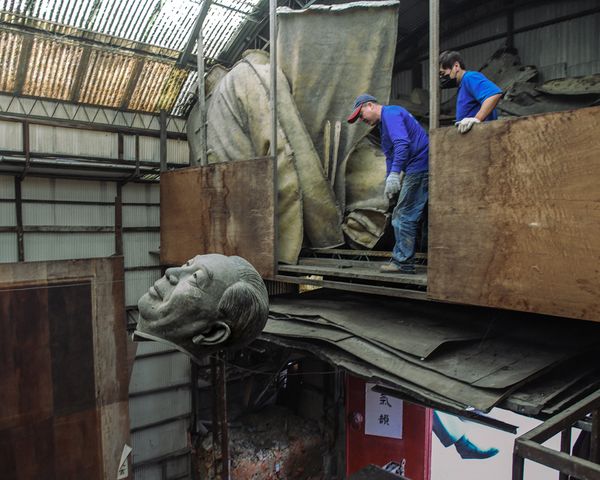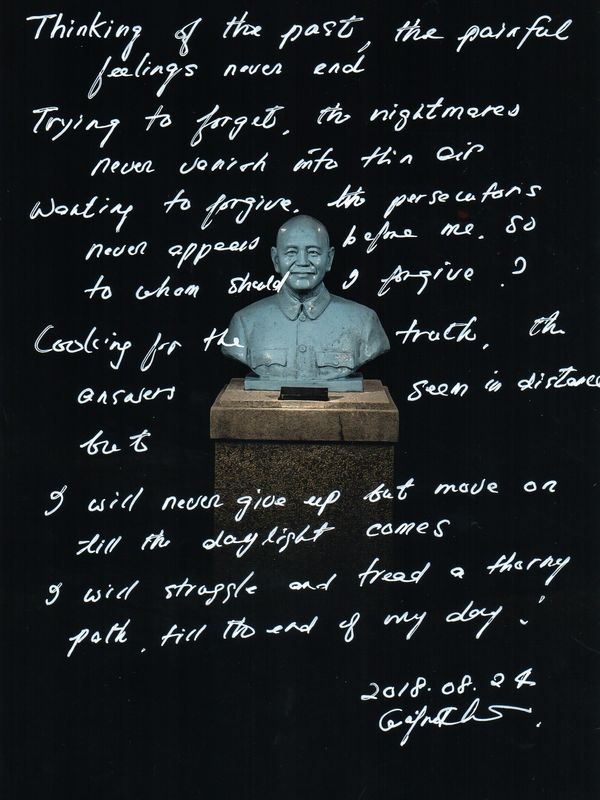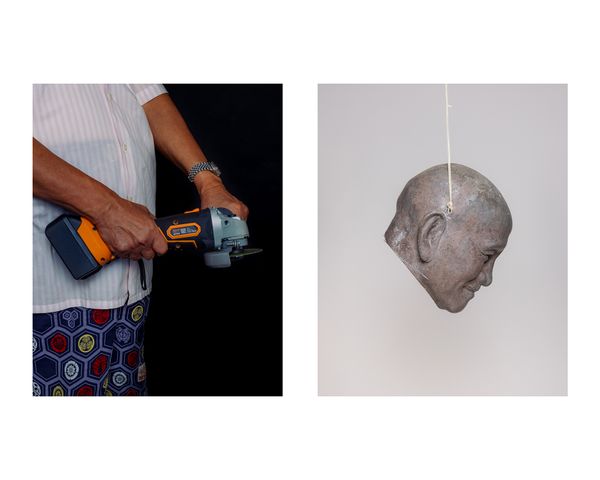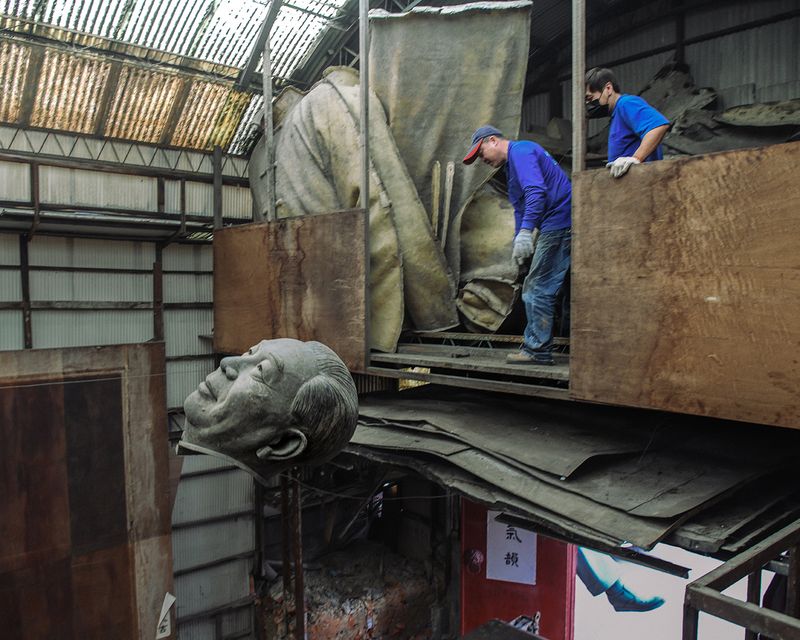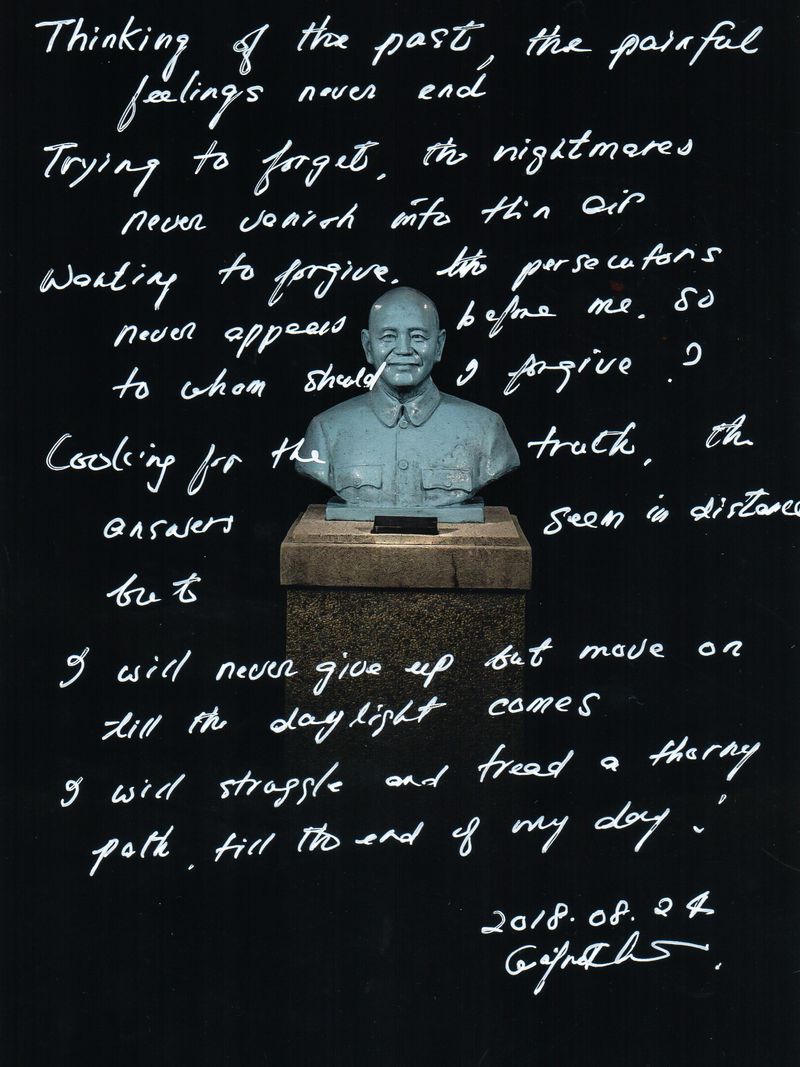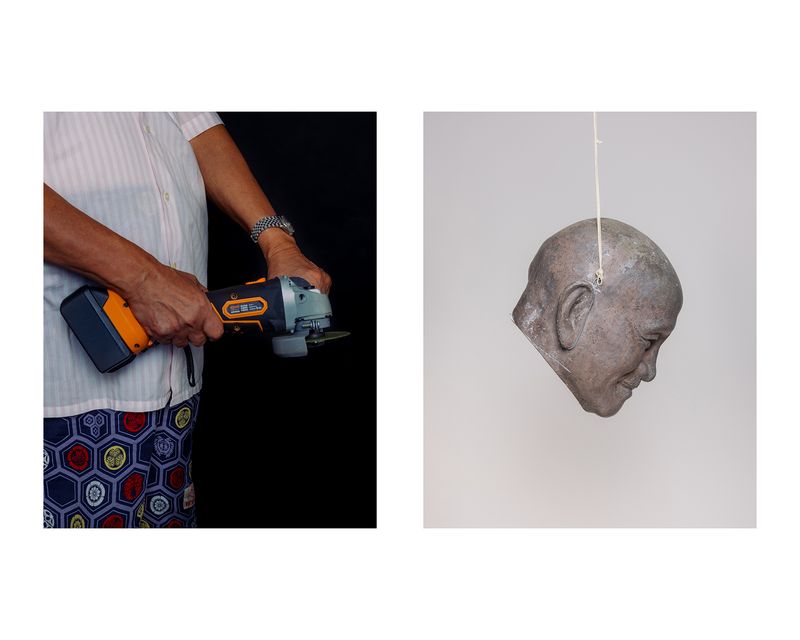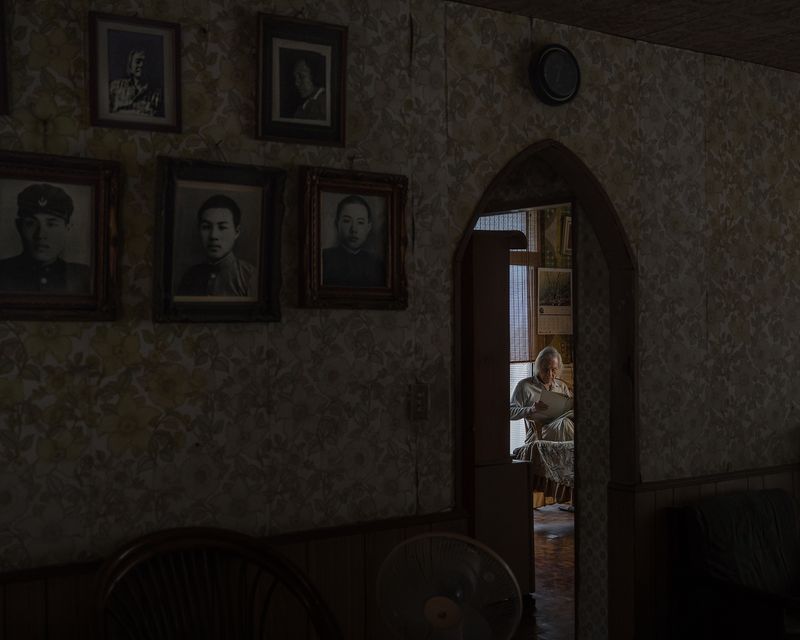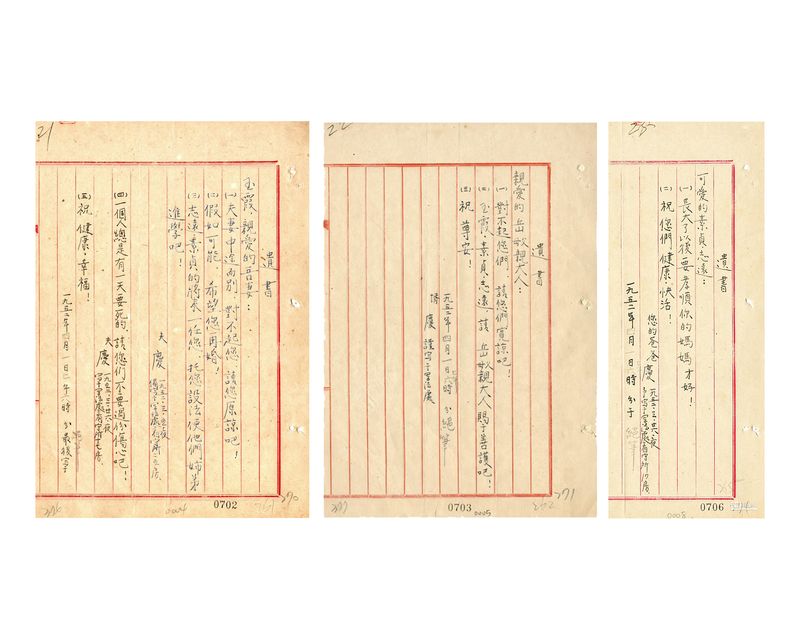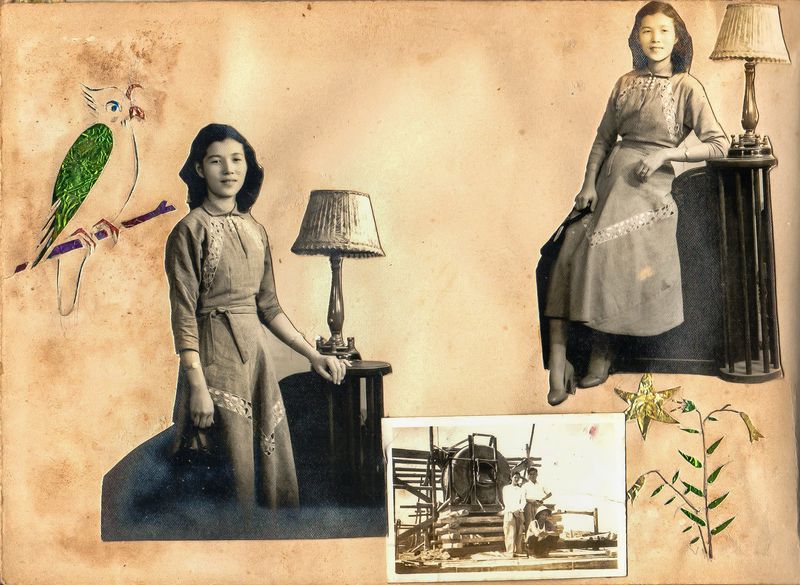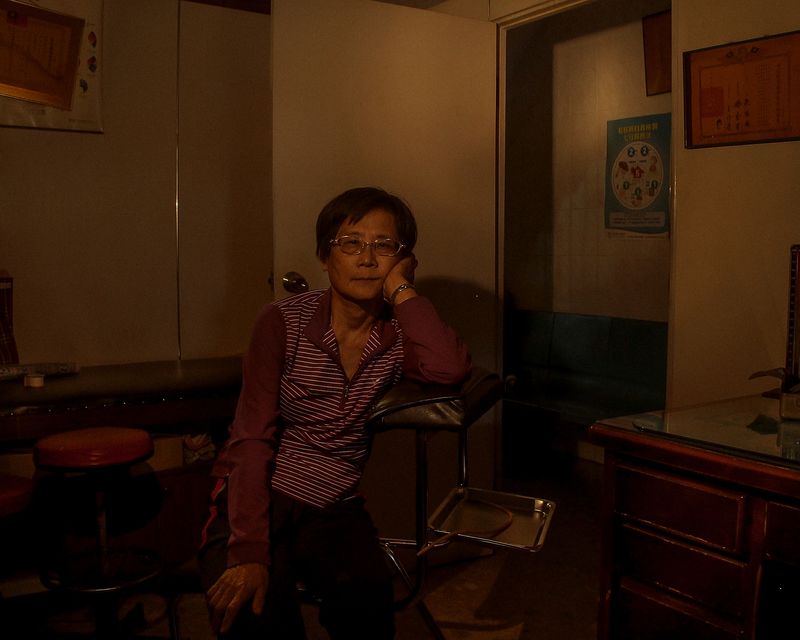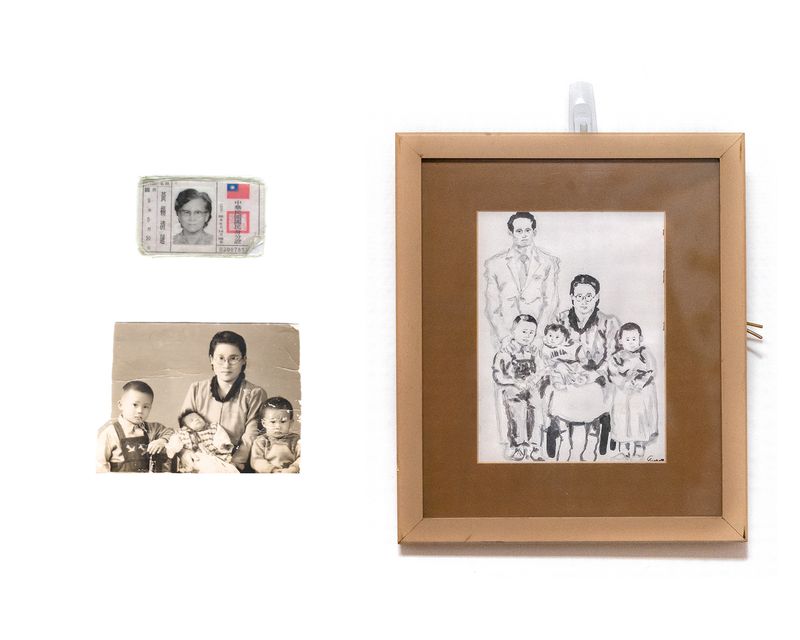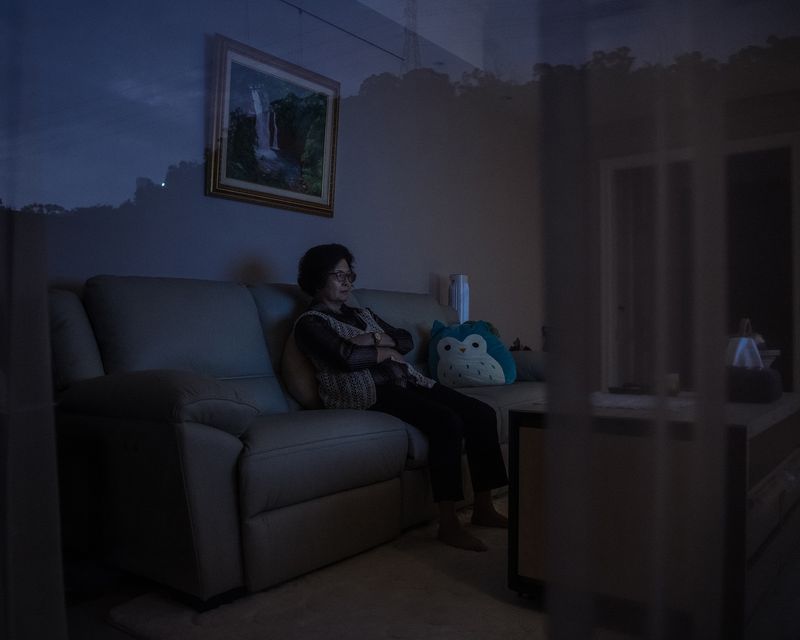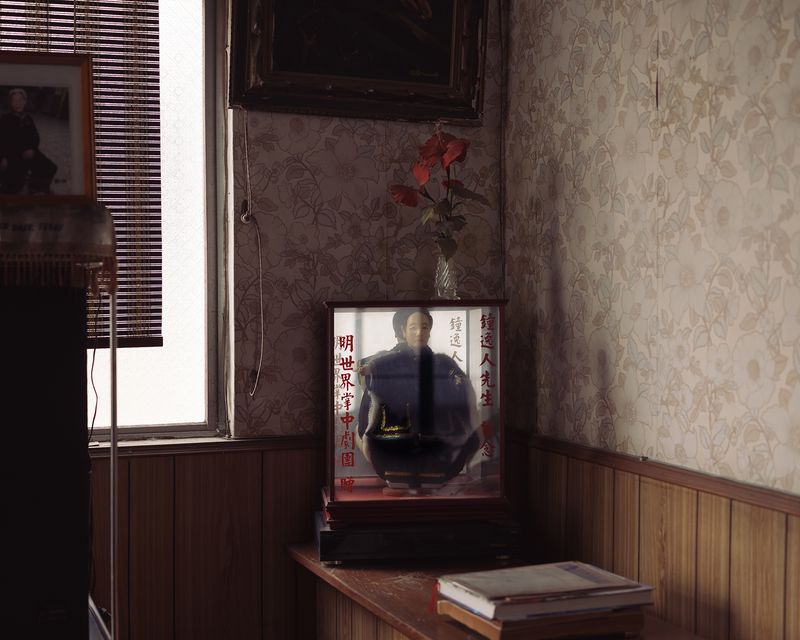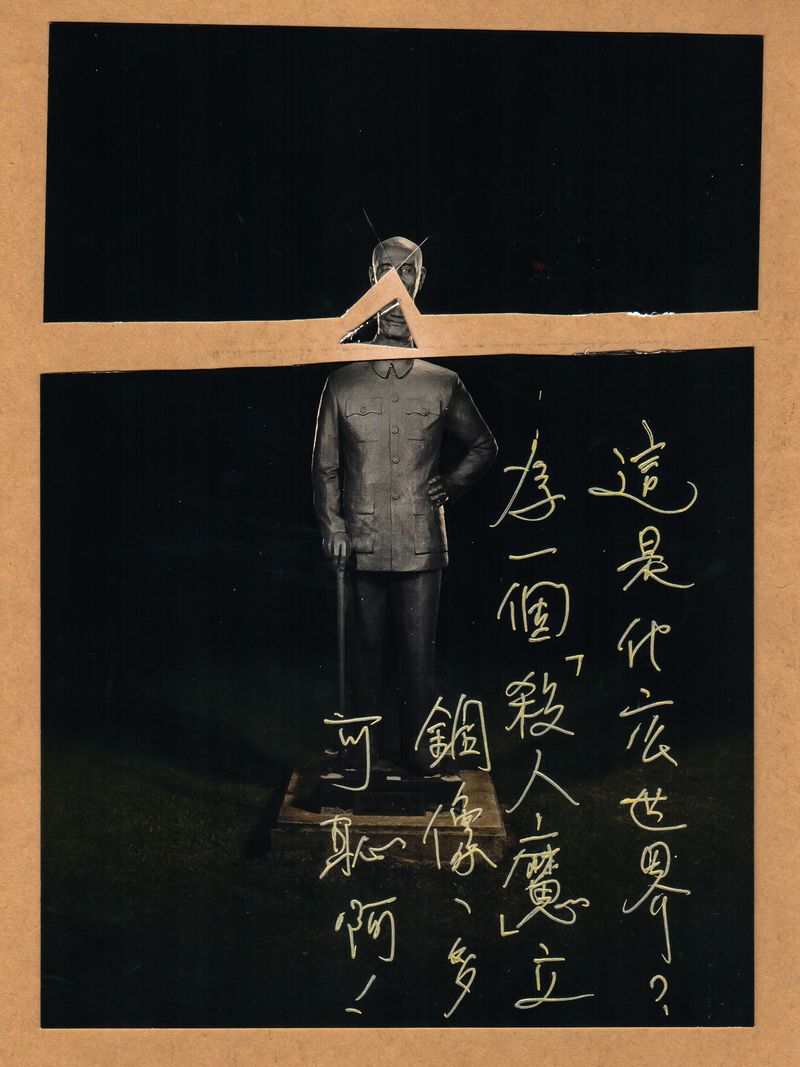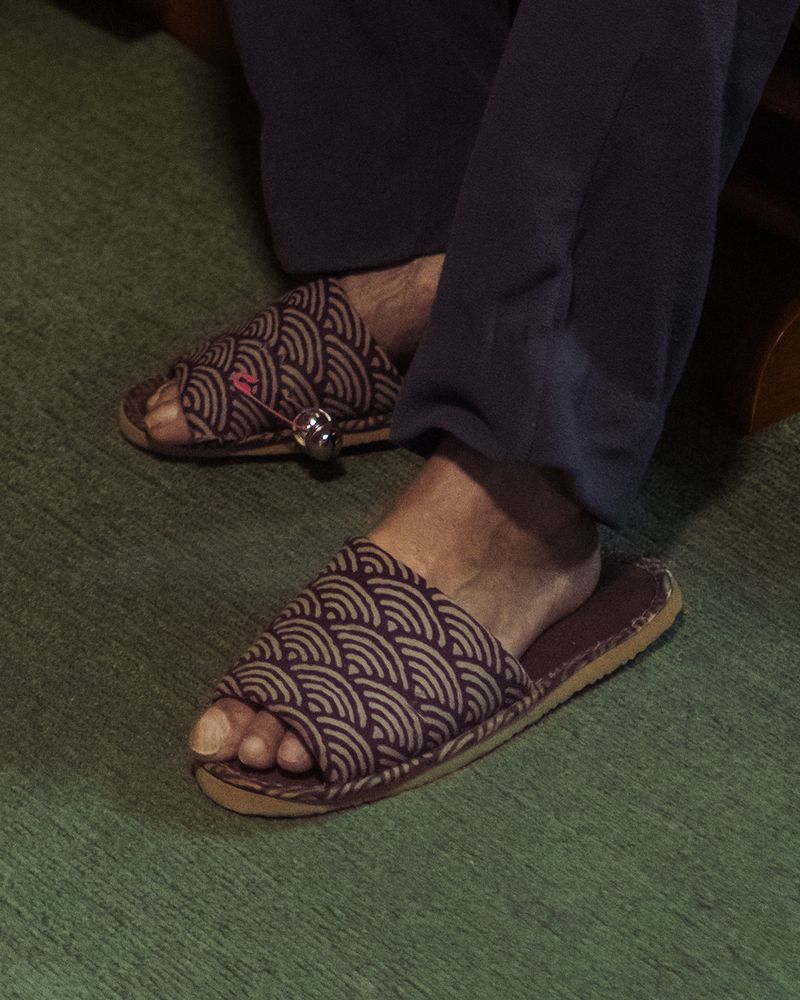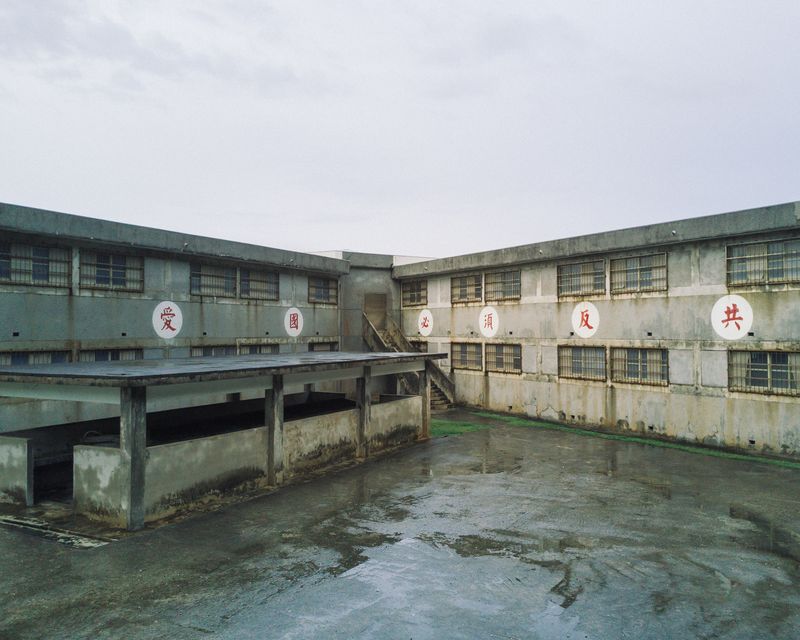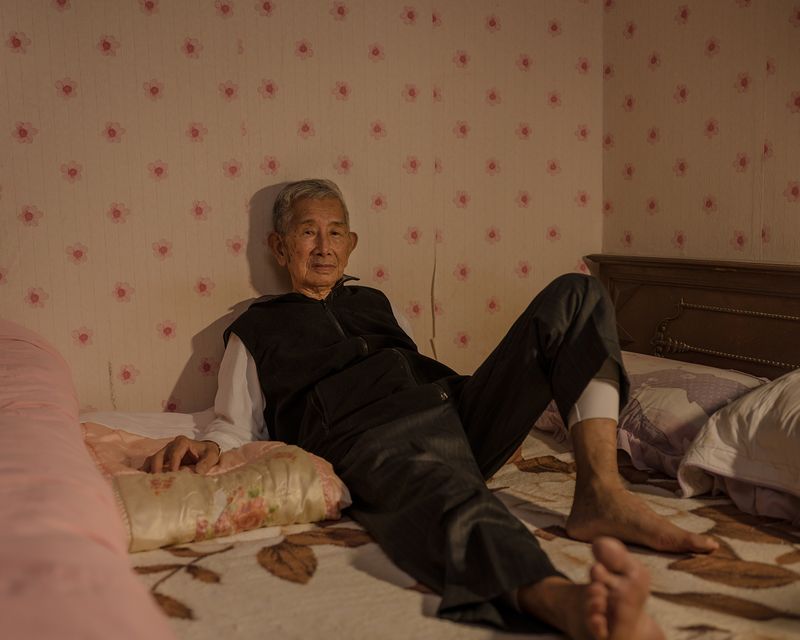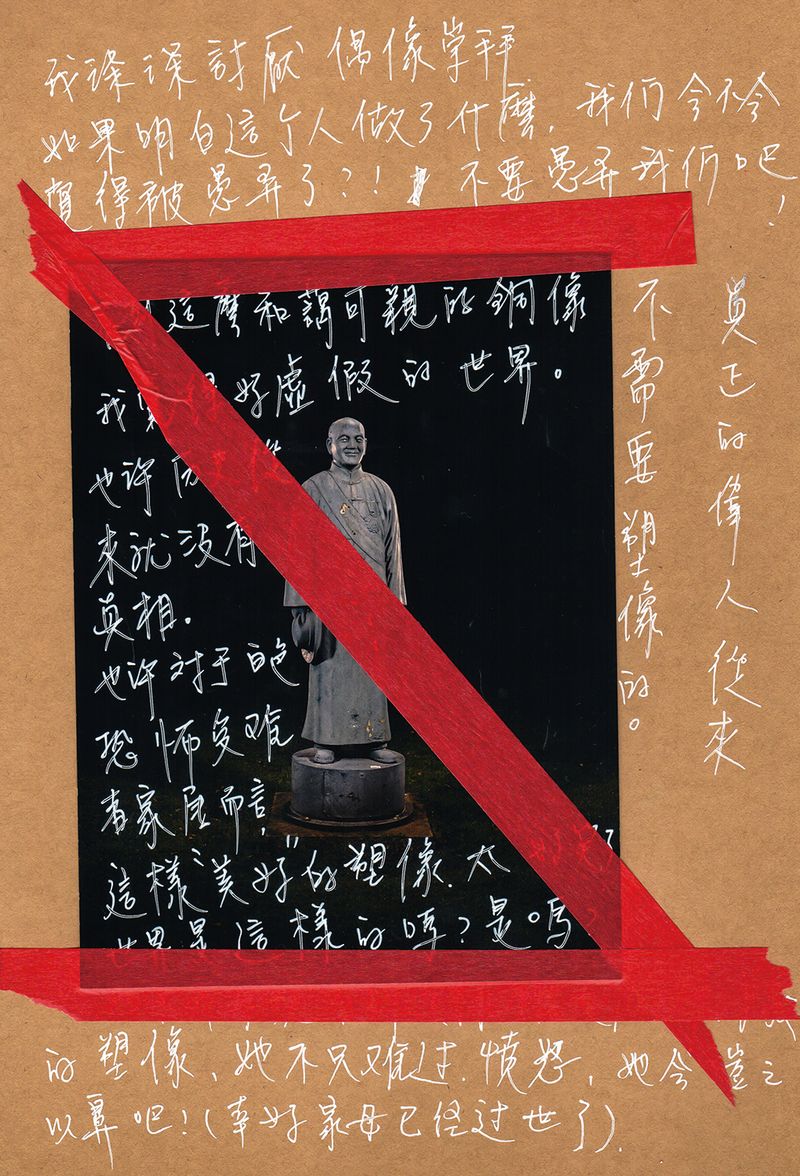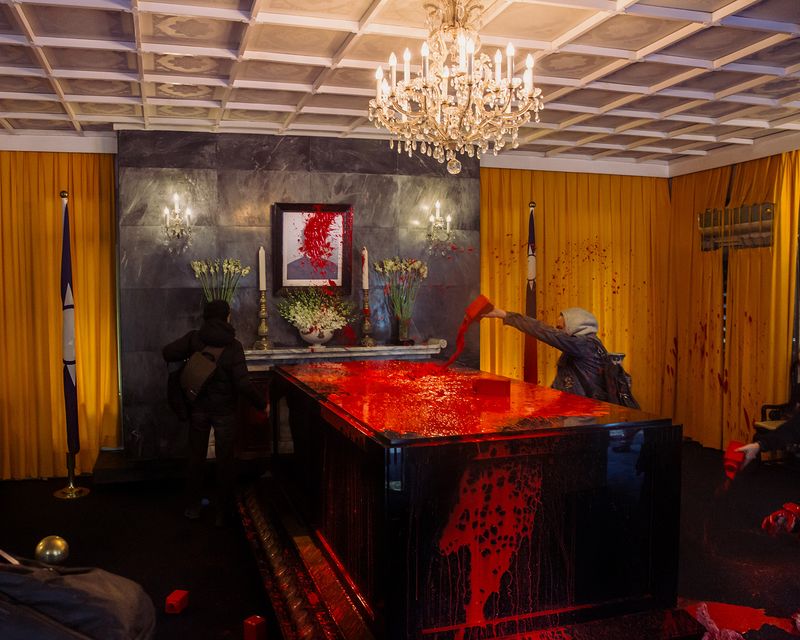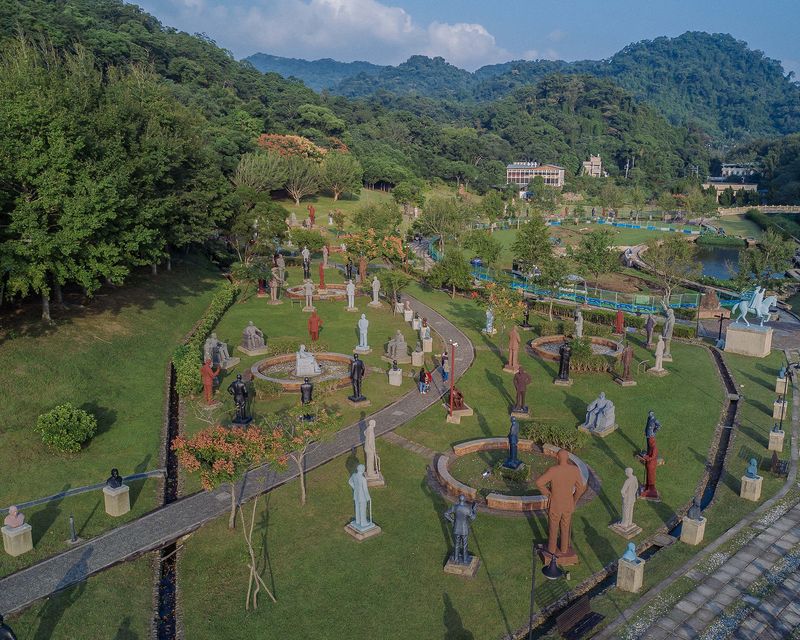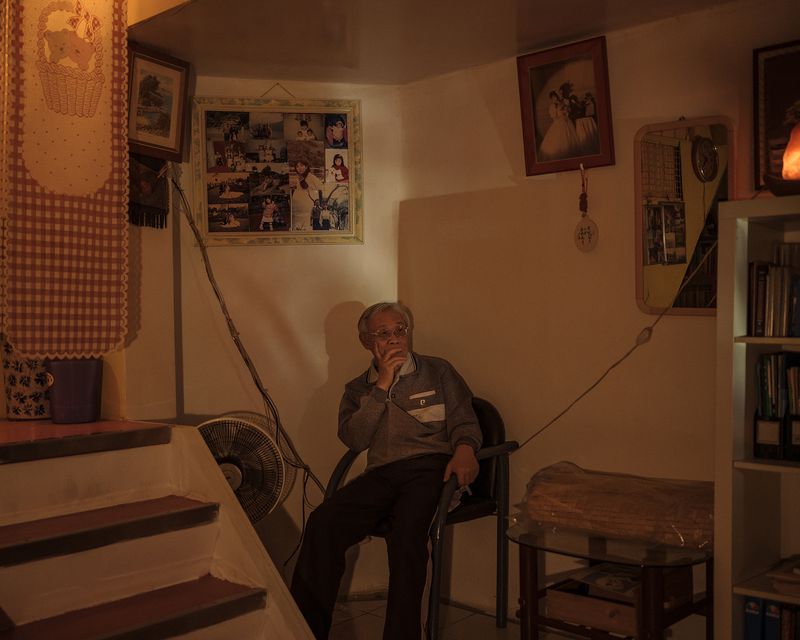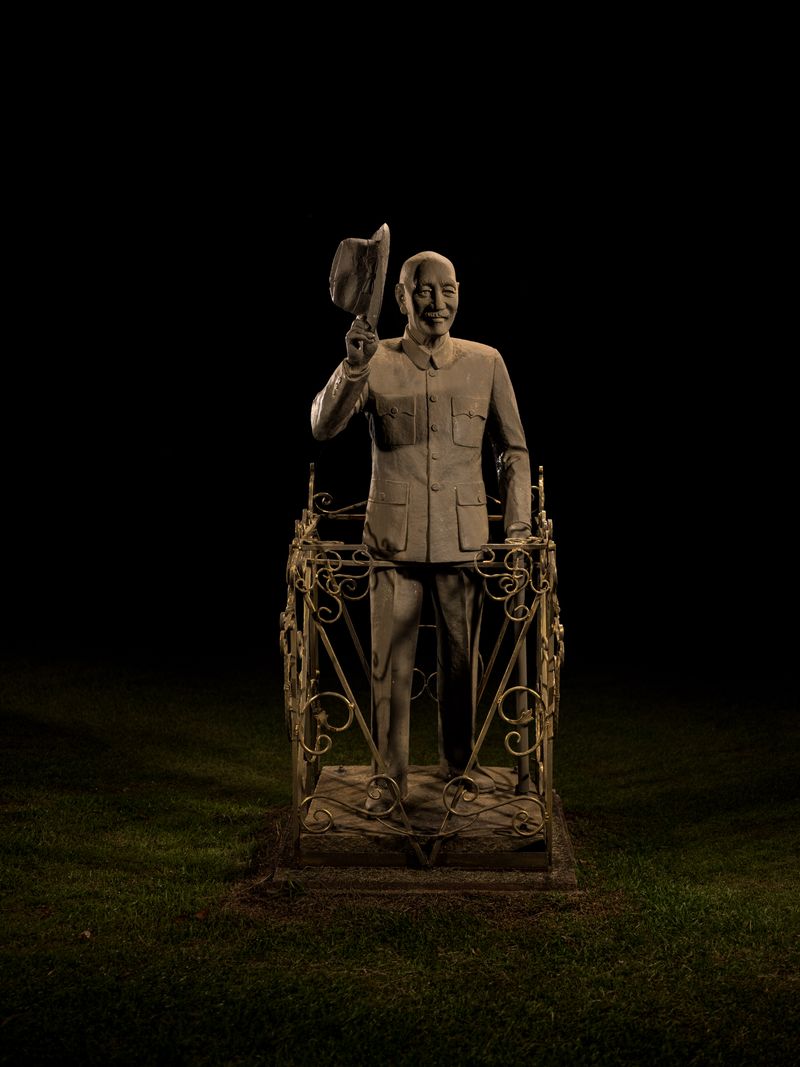Last Letters: A Photographic Investigation of Taiwan White Terror
-
Dates2017 - Ongoing
-
Author
- Location Taiwan, Taiwan
-
Recognition
-
Recognition
70 years after the political suppression - also known as White Terror - in Taiwan beginning from 1949 to 1991, societal amnesia takes place in the society and the rising generations.
Last Letters is a visual and archival investigation into a dark chapter of Taiwan’s political past, taboos and societal amnesia.
It excavates the hidden histories of the period of authoritarian rule in Taiwan under dictator Chiang Kai-shek known as White Terror (1949 - 1991). Over 150,000 civilians were arrested and more than 20,000 were executed.
Incarcerated civilians were allowed to write final letters to their families before they were executed. Most of these letters were kept by the authorities, never sent, never received, never answered. They remain in the national archives, some of them classified. 179 of these letters with the prisoners’ last words have been released and collected by their families — 70 years on. The total number of letters unreleased remains unknown.
I researched and collected letters which have been concealed from their families by the government. I photographed victims, the families left behind and invited them to reply to the last notes from their late relatives.
The wounds left over from that period of authoritarian rule still fester, just as the statue of Chiang Kai-shek remains ubiquitous around Taiwan. I also made ‘portraits’ of his likeness and invited the families of the massacred to intervene with my prints.
The images I’ve made and archival material I’ve collected speak to the hidden traumas and memories that have passed on, one generation to the next. Underlying these excavated memories are the absent presences — which leave their traces in the past, present and future.
With this work, I try to memorialise some of those traces, with the hope that it might help reunite those last letters with their rightful owners, finally.
Before victims and their second generations withering away, I aim to build an archive of these classified letters with the families’ response, as well as to open up conversations in the society. Its not only because of the importance of exploration of collective memory, but also for us to know more about our past before we decide our future.
